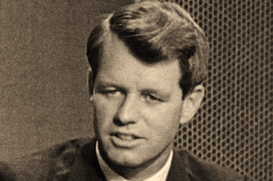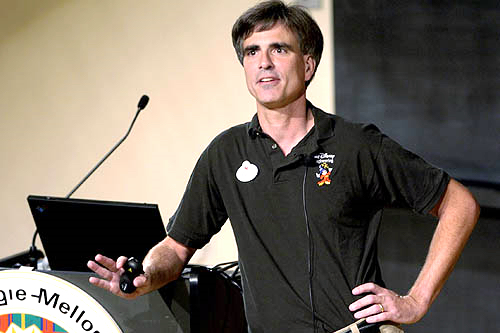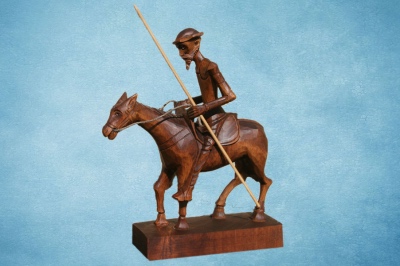About My List of Dulcineas
|
One of my mentors is Don Quixote, the Man of La Mancha. He ranks with other mentors like Teddy Roosevelt, Bobby Kennedy, Carl Sagan, Steve Biko, Aung San Suu Kyi, and Randy Pausch. I kid you not. He has been a mentor of mine for decades. However, in the past couple of years since dancing with death, the truth and reality of that Man of La Mancha resonates with me unlike it did years ago. 
The engraving of Don Quixote was done by Gustave Doré and under it is this single sentence that describes Don Quixote, "A world of disorderly notions, picked out of his books, crowded into his imagination." While that is an excellent statement about him, I accept it as a defining personification of me. Many years ago, someone once dissed my dreaming as mere fantasizing. He said that my imagination merely got out of control. In effect, I was merely a B-team Don Quixote at best. Don Quixote was seen by him as having no value. This graduate student did not like my lifestyle as a 21st century knight errant. This is directed to you, my reader. I want you to understand this statement. I don't exaggerate or gloss over topics while writing any of my essays. Just so we are on the same page, Don Quixote drives who I am. I can't imagine living without the mentoring of the Man of La Mancha. Whether I am on a B-team or not, I cannot imagine living without a mentor like Don Quixote. There are many quests in my life about which I am a knight errant. I would not want to live without those that encourage me like my mentors. I truly feel sorry for those that live without having mentors. In part, that is one of the reasons for this essay. I hope that you seek out mentors for you and be guided by them. 
One of the problems with people that diss Don Quixote and his followers is that they do not understand the storyline. Cervantes wrote his novel in 1605 as a type of parable, even though the parable is much longer than those to which we are used to reading. Let me give you an example of a parable from the New Testament, which we think that we understand. Christ tells his followers the Parable of the Prodigal Son so that they can better understand his ministry and mission. Instead of lecturing them using theological terms, he tells them a simple story, a parable. In this way, it would avoid confusion and misunderstanding. Nonetheless, down through the ages, the church missed the message and misnamed all of the parables. For example, the Parable of the Prodigal Son is not about some recalcitrant son. At most, the prodigal son is merely the backstory. The Parable of the Prodigal Son is actually The Parable of the Forgiving Father. Many view Don Quixote as a knight errant joisting with windmills while looking for his Dulcinea, his love of his life. Cervantes wrote Don Quixote describing his true love,
Cervantes' novel, The Ingenious Gentleman Don Quixote of La Mancha is a lengthy parable, and the focus of the novel is not about joisting with windmills or looking for Dulcinea. It is in fact about all of Don Quixote's quests in life. Interestingly, these causes were critically important to him. As a result, he was "willing to march into hell for a heavenly cause." There are some additional problems with Dulcinea other than it being a backstory of Cervantes' novel. First, her name is not Dulcinea, but Aldonza Lorenzo. In addition, she is not in love with him, regardless of his feelings for her. In spite of that fact, she is not as he perceives her to be with "her hairs are gold, her forehead Elysian fields, her eyebrows rainbows, her eyes suns, her cheeks roses, her lips coral, her teeth pearls...." She is not some Grecian goddess; she is merely an average person who works at a bar. Nonetheless, Don Quixote is not stopped by that reality. He dreams on.
This is what Don Quixote sees in her as he sings to her. Aldonza Lorenzo was not a pure beauty. Yet, he continues to seek her even though she is not quite as beautiful as he claims she is. 
Additionally, Don Quixote has other quests in his life as a knight errant. I, too, have other quests. I call them my list of Dulcineas. You and I have other goals or things that we wish to gain in life. We want another job, improved health, more happiness, success in school, and to help others. There are some people that I wish to help beyond my family. Several of these people live overseas in other countries. They are on my list of Dulcineas. Having said that, I am absolutely driven in my quest. Nevertheless, being driven does not inherently provide immediate or guaranteed success. If that were true, I would not have gone through my list long ago. Don Quixote's list or my list often contain things with which we will probably not be successful, regardless how valiantly he or I might fight to obtain them. Having said that, another mentor of mine was Teddy Roosevelt, who gave a speech at the Sorbonne on April 23, 1910. This single paragraph from that speech is called Man in the Arena.
Don Quixote taught me by his lifestyle about daring greatly also. He failed many more times than he succeeded. Regardless of his success rate, he continued attempting "to march into hell for a heavenly cause." Therein lies a critical issue for each of us. It is not a matter of winning one's joisting all the time; it is a matter whether or not each of us tries. We must clearly understand that fighting the good fight is not related to our success or failure. Our own personal chivalry is tied to attempting our own impossible dreams of life. You must understand what Don Quixote understood. It isn't whether we win or lose as much as that we attempted to obtain our goal. Roosevelt said that "if he fails, at least fails while daring greatly, so that his place shall never be with those cold and timid souls who neither know victory nor defeat." Don Quixote is determined even on his deathbed to dream the impossible dream, which means "to run where the brave dare not go." Years ago, I thought that I understood his valor and determination. However, I get it now, even though I thought I knew it decades ago. I have danced with death twice, and it is now that I truly understand Don Quixote's determination and drive. I understand from whence Don Quixote is coming. I have been there and have experienced a wondrous transformation while doing the dance. Cervantes wrote his novel having also done the dance himself. Finally, this is equally important that you understand. The Man of La Mancha also taught us that perhaps he was correct when he viewed his goals. Perhaps, his Dulcinea was not quite as average as Aldonza Lorenzo seemed to be to us. Perhaps one of the strengths that he had was indeed seeing value in people that society did not. Maybe, Aldonza Lorenzo was more beautiful than the townspeople imagined. And what is true for one of his Dulcineas is true for his long list of goals as it is for me and should be for you. Several months ago, my daughter and granddaughter were over for dinner. I asked them about what changes they saw in me related to doing the dance. Ayanna, my twenty-year-old granddaughter, in a few seconds rattled off a half dozen of her observations:
When I did both dances with death, I led death. While I do not wish to dance again for a long time, I would not delete either from my life. That is one of the most transforming events in my long life. That is why I understand Don Quixote and Cervantes more than I did decades ago.
Visit the Bobby Kennedy page to read more about this topic.
Visit the On Seeing the Light page to read more about this topic.
Visit the Connecting the Dots page to read more about this topic.
Visit the Darkest Before Dawn page to read more about this topic.
Visit the The Last Lecture page to read more about this topic.
Visit the Dancing with Death page to read more about this topic.
Visit the My Hauntings page to read more about this topic.
Visit the Man in the Arena page to read more about this topic.
Visit the "Don Quixote" page to read more about this topic.
Visit the Music I Love and Why page to read more about this topic.
Visit The Mentors and Me page to read more about this topic.
Visit the Best and Worst of Times page to read more about this topic. 02/12/16 Follow @mountain_and_me |


















